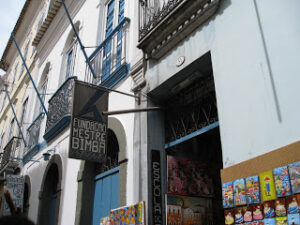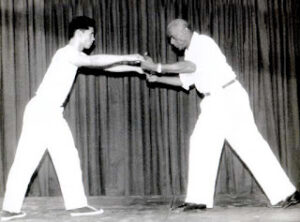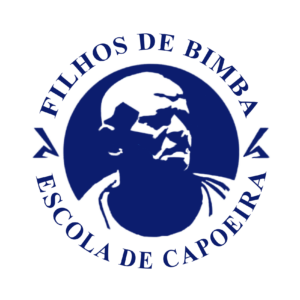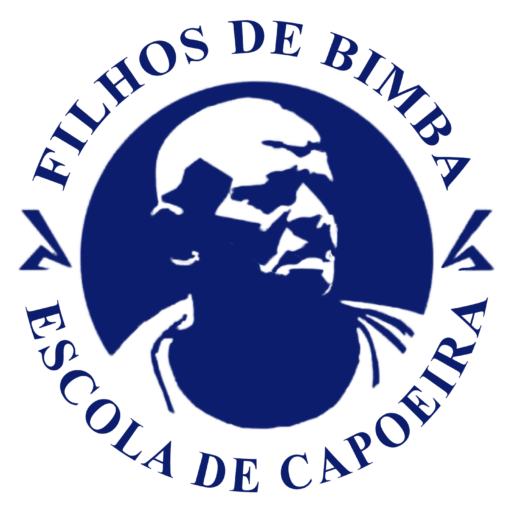 The Filhos de Bimba Escola de Capoeira (FBEC), is located in the historic center of Salvador da Bahia, the Pelourinho. Manoel Nascimento Machado, known as Mestre Nenel, founded it on June 10, 1986. Mestre Nenel is continuing the work of his father – the famous Mestre Bimba, creator of Capoeira Regional – through the preservation and continuation of the methodology, principles and traditions laid out by his father. The FBEC also has several centers and schools located in other neighborhoods of Salvador, as well as in other cities in Brazil and around the world.
The Filhos de Bimba Escola de Capoeira (FBEC), is located in the historic center of Salvador da Bahia, the Pelourinho. Manoel Nascimento Machado, known as Mestre Nenel, founded it on June 10, 1986. Mestre Nenel is continuing the work of his father – the famous Mestre Bimba, creator of Capoeira Regional – through the preservation and continuation of the methodology, principles and traditions laid out by his father. The FBEC also has several centers and schools located in other neighborhoods of Salvador, as well as in other cities in Brazil and around the world.
THE METHODOLOGY

- The Ginga – The Ginga is the fundamental footwork of Capoeira that is done to the rhythm of the berimbau
- The Admission Exam – an evaluation of basic capoeira movements meant to identify students’ capabilities
- The Sequencia or sequence of the 17 basic attack and defense moves used in Regional
- Berimbau rhythms for the Roda
- The Movements: broken down into several categories, including
- Traumatizing Movements (Traumatizantes),
- Unbalancing Movements (Desequilibrantes)
- Projections (Projeções)
- The Centura Desprezada: a sequence of projecting movements for advanced Students.
- Specialization Courses: Especialização I – emboscada (ambush) and Especialização II – curso de arma (weapon defense course)
TRADITIONS AND RITUALS

- Hold the hands when teaching the Ginga
- A chair used for training
- The “Charanga” is the traditional Regional orchestra composed of one berimbau and two pandeiros
- Berimbau Rhythms: The most important rhythms in Capoeira Regional are São Bento Grande, Banguela, Iúna and the “Hino da Capoeira Regional”
- Quadras and Corridos song patterns used in Capoeira Regional
- The “Batizado” or initiation, also called “cair no aço” is the first game that a beginner plays to the sound of the berimbau
- The “Festa de Batizado” was the initiation ceremony that traditionally followed the first game, in which the student received his or her Capoeira nickname (“Nome de Guerra”, which literally means “War Name”)
- The “Formatura” is a celebration ceremony for the completion of specific courses
- “O Esquenta Banho” – This tradition started because the academy of Mestre Bimba had only shower. Bimba did not want his students’ bodies to cool down, so the student kept warming up until their turn came to shower. Many student made use of this to test their capacities
THE PRINCIPLES

- Ginga constantly while playing. (The ginga is the basic movement in Capoeira.)
- Always dodge and evade the opponents attacks, do not resist.
- Always play close to your partner.
- All movements must have a purpose.
- Always keep at least one base on the ground at all times – at least one hand or foot. Mestre Bimba often said, “o chão é amigo do capoeirista“ (the floor is a friend to the capoeirista).
- Obey the rhythm of the berimbau.
- Respect a player if he / she can no longer defend from an attack.
- Protect your partner’s physical and moral integrity – stronger players have a responsibility to care for weaker players.

The children of Bimba School of Capoeira preserves the legacy of Mestre Bimba’s Capoeira Regional. His followers advocate the importance of rules, principles, traditions of capoeira – a Black manifestation that was prohibited by law. Capoeira Regional addresses needs of the new millennium. A mental exercise that utilizes rhythms, song, dances, movements of attack and defense, while focusing on freedom of expression. Capoeira Regional develops physical alertness, self-control, physical conditioning, adding value to self-esteem, conflict management, strategy, mastery of the body, history, crafts, amongst others. Today Capoeira Regional is not only an exercise in self-defense, but also in self-discipline, that can fill the philosophical, cultural and musical needs of the modern world. Mestre Bimba’s Capoeira Regional embodies the philosophy of living well, devoid of prejudices and acts a tool for education, personal growth, growth of the community and the world.

